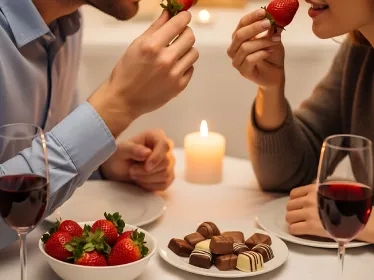
What is the science or psychology behind feelings of love and affection?
Love and affection are complex emotions that have intrigued the human race for centuries.
According to Dr Helen Fisher, biological anthropologist and a leading expert on the biology of love and attraction, love can be divided into 3 discrete feelings - lust, attraction and attachment. She further hypothesised that these feelings are mediated by unique hormones and neurotransmitters. The latter are chemical molecules produced by brain cells for communication purposes.
Lust is mediated by sex hormones such as testosterone and oestrogen. Attraction is driven by dopamine, noradrenaline and serotonin. These are key neurotransmitters found in the brain and have important roles in mood regulation. Feelings of attachment, on the other hand, are related to oxytocin and vasopressin secretion in the brain.
What is often described and felt most intensely as “love” is the feeling of attraction. Notably, when dopamine, noradrenaline and serotonin activities surge in the brain, these can provide spikes of “highs” and even feelings of ecstasy, which can be quite addictive.
From a psychological standpoint, however, love goes beyond this neurobiologically mediated rush of positive emotions. Through time, there have been many attempts to define what constitutes “true love”.
So, what is love?
To me, the best definition comes from Dr M. ScoA Peck, psychiatrist and psychotherapist. In his book “A Road Less Traveled”, he defines love not to be a feeling, but “an activity and investment”. Love is what we do for the other person. It is about giving ourselves and the other person what they need to grow. It is about truly knowing and understanding them. When we get past the stages of lust and aArac3on - which are perceived to be but the concentration of mental or emotional energy on a person, object or idea; we can then start to love.
He goes on to define love as “the will to extend one’s self for the purpose of nurturing one’s own or another’s spiritual growth”. Put simply, when we choose to love and are in a loving relationship, the parties within this relationship learn to extend their boundaries and grow to become better persons. In this sense, the notion of love is not limited to romantic love between 2 persons, but also encompasses other types of love e.g. the love between siblings, a parent and a child, friends etc.
Dr Peck elaborates that if we truly love someone, regardless of where the relationship goes, our desire for their happiness and growth would not change. This, in turn, promotes our spiritual growth.
How does our brain or mental state change when we are in love? How does this affect our health or mental health?
The brain’s reward system has been known to undergo complex changes when an individual is experiencing feelings of love.
The increase in the brain’s dopamine, noradrenaline and serotonin activity has been postulated to help mitigate negative emotions, physical pain and distress. These effects remain sustained as long as one continues to feel satisfied with the relationship he/she is in.
Psychologically, one experiences emotional growth and an expansion of his/her boundaries. This results in the improvement of self-esteem, confidence and the general sense of well being. One also becomes more empathetic and learns to manage his/her emotions better.
How can you nurture your relationships?
The first thing that we will need is to be constantly mindful that being in a relationship is an activity that requires unrelenting effort.
Ensuring open, non-judgmental communication is crucial. Regular communication of this nature helps to build trust and the feeling of safety around each other. In turn, these elements go on to form the foundations on which both parties can learn how to work through challenges and disagreements together in a constructive manner.
Always seek to be gentle and compassionate with each other, even on the worst of days. It helps to always remember the moment when eyes were first set on the other. Make it a point to validate each other’s successes. Also, learn to embrace each other’s imperfections. Be sure to be around for the lows because life is never smooth sailing, even when we are with the partner of our dreams.
Laugh. Laugh a lot, not just at ourselves for the silly mistakes we make, but with each other, for life throws up funny moments from time to time. And be open to sharing each other’s goals and aspirations.
Always remember that a relationship is a shared journey of adventure and discovery. There will be much for both to learn about each other and many life lessons to be shared. New common experiences are important. These can help to foster stronger bonds.
And yes, emotional intimacy and romanticism aside, do not neglect the amorous aspect of the relationship. This is very important too.





